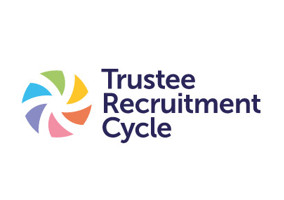The Charity Commission has released new Covid-19 guidance for trustees, as many remaining legal restrictions are eased in England and Wales.
The regulator has said it wants to assure charities that during this period it “will continue to act proportionately in the public interest, whilst helping trustees to think about the wider or longer impact of their decisions on their charity”.
This guidance states that trustees should think about “whether or not certain projects, spends or activities can be stopped or delayed in order to focus on essential spending if they are facing financial challenges at this time”.
It adds advice on mergers and collaborative working, in light of some of the financial obstacles charities are facing.
Holding AGMs and meetings
The guidance says that charities can gradually move back to face-to-face meetings and hold any outstanding AGMs or other meetings.
It notes that “coronavirus continues to have an impact on charity events and trustees may still need to consider how and if they can hold meetings”.
Charities should check if their governing document allows them to hold meetings online, by telephone or on a hybrid basis and consider if they use any power in a governing document to amend the rules to allow the meeting.
Charities that are not able to hold virtual AGMs, and are not able to move face to face, may have to cancel.
“Trustees may consider that holding a virtual or hybrid AGM or other required meeting is not a viable solution. It may also not be possible for them to move immediately back to face-to-face meetings. In these circumstances, trustees may consider they have no choice but to cancel or postpone,” the guidance reads.
“If your governing document does not allow you to postpone or cancel meetings you should use any power in your governing document to amend the rules to ensure you can hold meetings in a valid format,” it adds.
The regulator states that since the start of the pandemic “we have generally been understanding” if trustees have decided to hold meetings on a remote or hybrid basis or postpone or cancel a required meeting, where trustees can show that they have considered all relevant factors and possible alternatives.
It adds that the regulator will continue to take this approach “in the short term as restrictions are lifted,” provided that trustees “can show their decision is in the best interests of the charity having taken all the circumstances into account”.
Nonetheless, it adds: “Others affected by those decisions may take a different approach, so you should take advice and fully understand the implications of any decisions you make.”
Regulator aims to bring filing extension to an end
Since April 2020 charities have been able to request an extension if they are unable to submit their accounts or annual return due to the pandemic.
The Commission has since reviewed its approach to filing extensions “with a view to bringing this temporary measure to an end”.
It has contacted all charities with a filing extension that was in place by 30 June 2021, and they will now need to meet their filing commitments by 30 September 2021.
Organisations with an imminent filing date that are unable to meet filing obligations for a Covid-19 related reason, can still apply for a new filing extension.
The regulator will allow a fixed three-month extension from the date of the application.
Related articles












